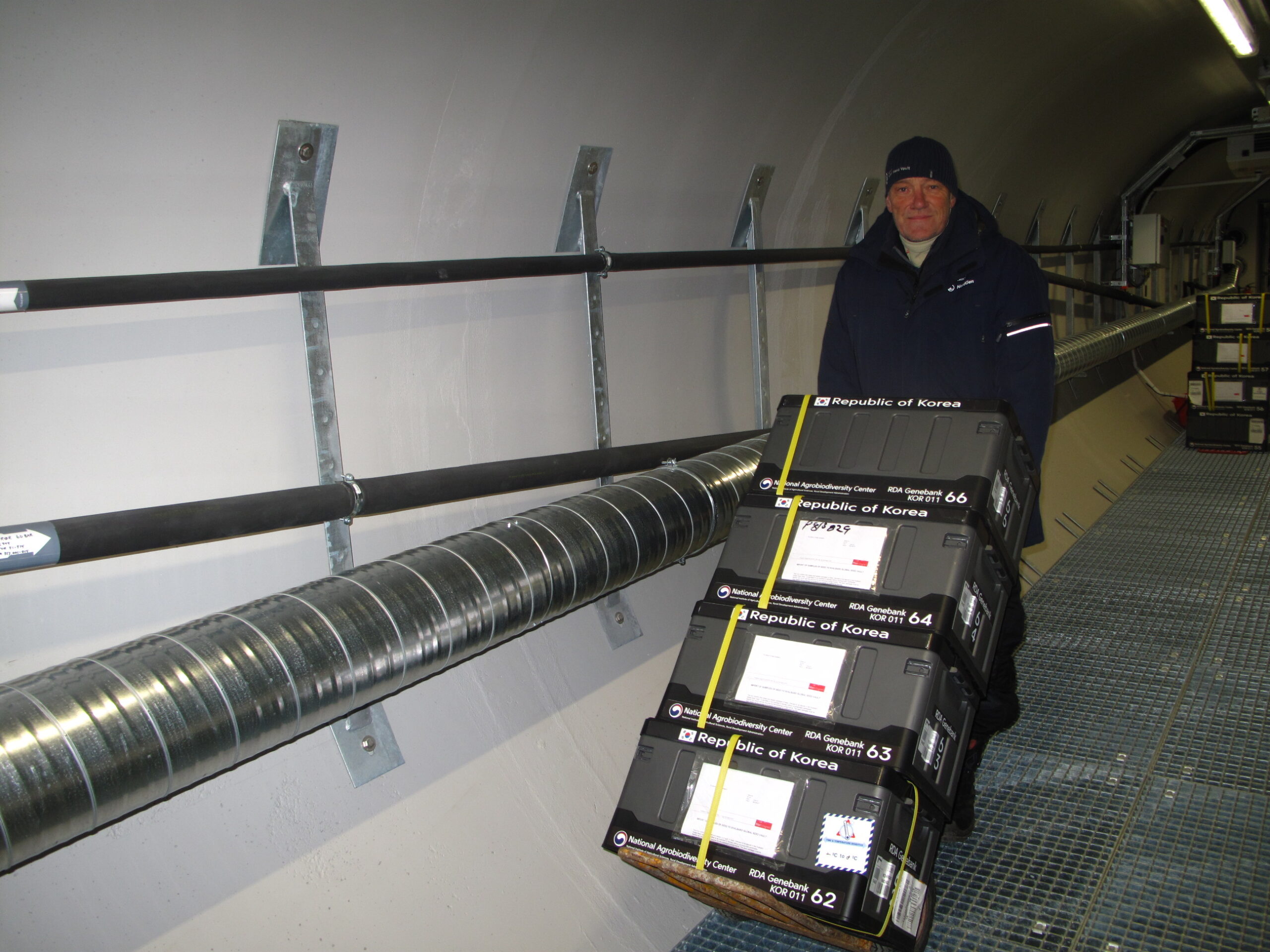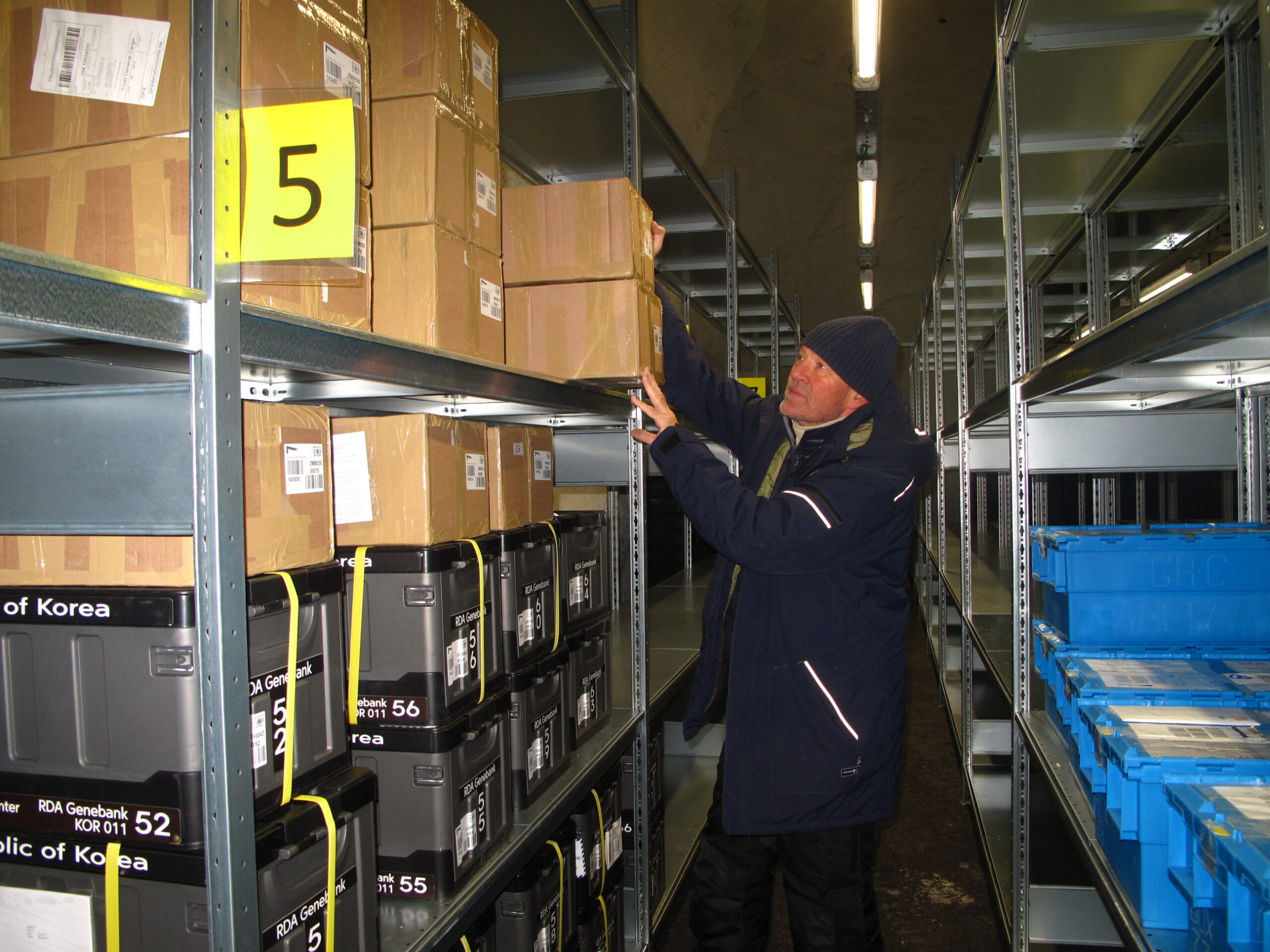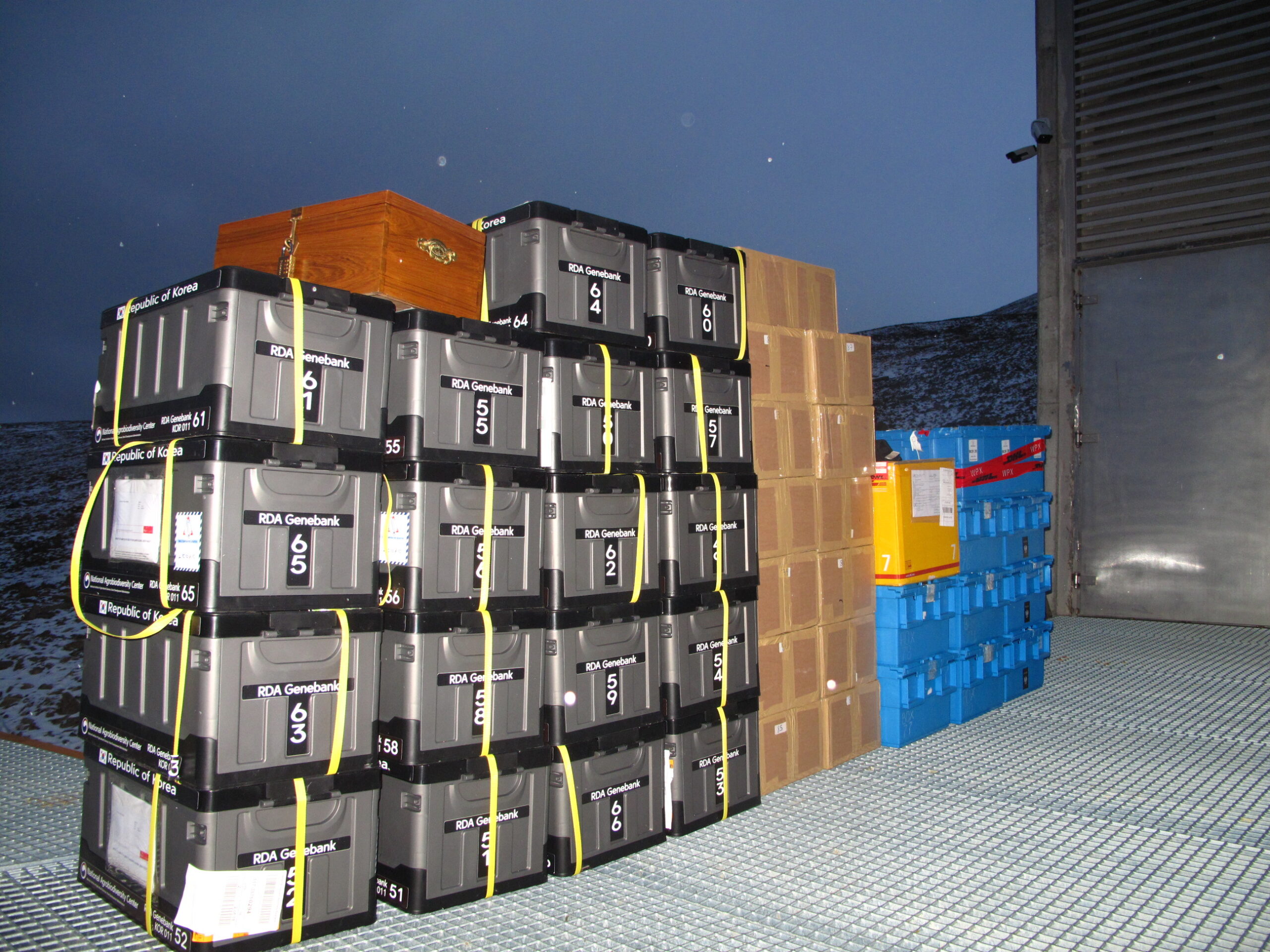
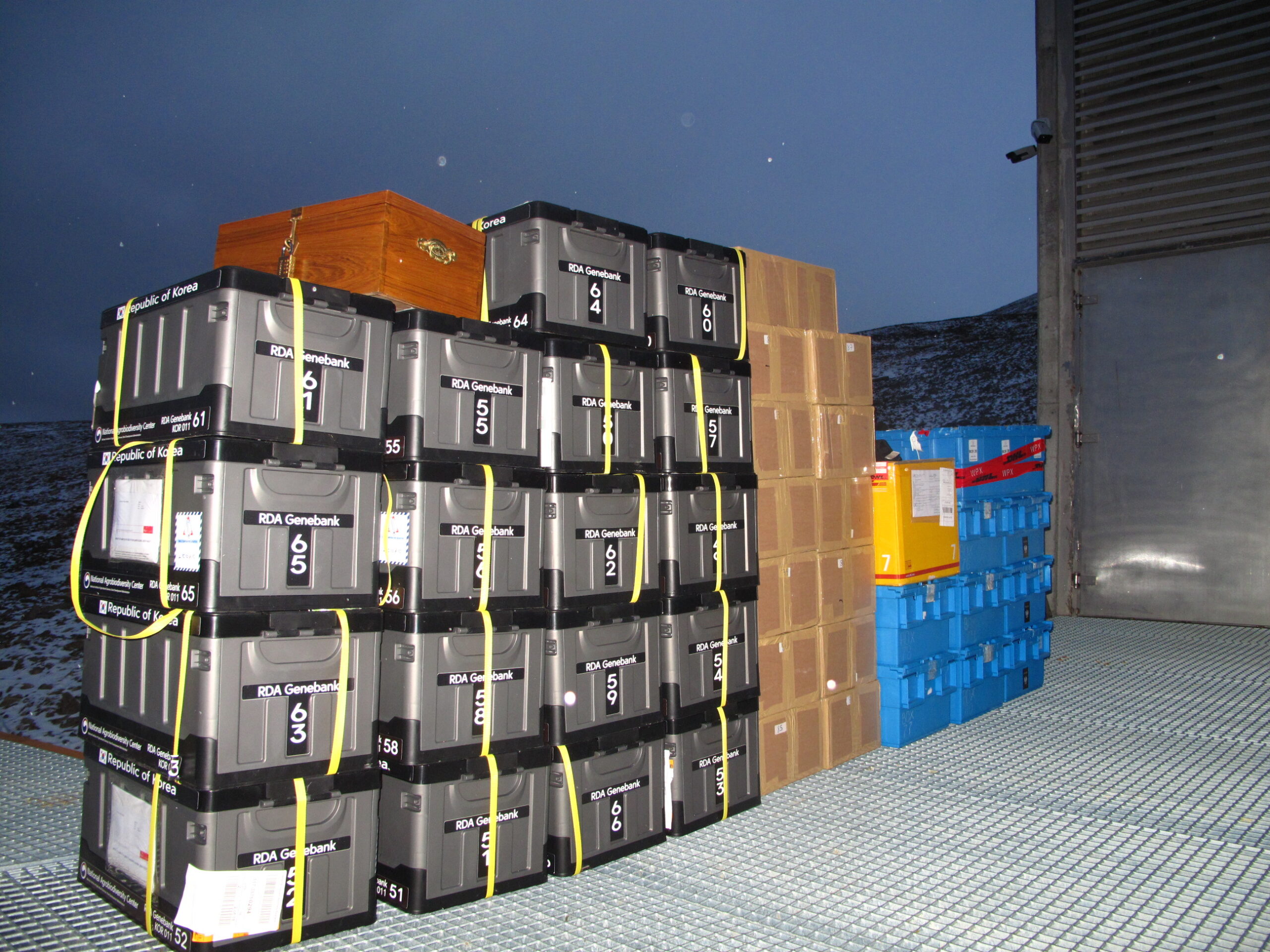
“Some accessions of these species are conserved in our long-term storage, but have not yet been secured in the Seed Vault,” said Marie Noelle Ndjiondjop, Manager of the Rice Biodiversity Center for Africa in Cõtes d’Ivoire. “All conditions have now been met for these accessions to be safety duplicated.”

“By having the newly improved seeds stored in the Svalbard Global Seed Vault, the Thai people can be sure that, in the event of global disasters, these seeds will be kept secure, and can be accessed for propagation and cultivation in the future,” said the Working Team of the Chaipattana Foundation in Thailand.
“These crop species are drought tolerant and guarantee food for communities amid these serious threats of climate change, as characterized by frequent droughts,” said Dr. Justify Gotami Shava, Head of the SADC Plant Genetic Resources Centre (SPGRC) in Zambia. “They have to be conserved to guarantee community seed security, now and in the future.”
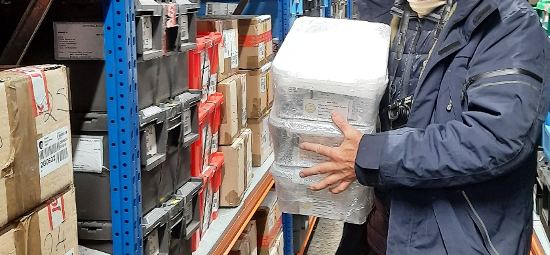
“It’s important to conserve them, because today these local varieties are rarely found in farmers’ fields, and have nearly disappeared from use,” said Dr. Kulchana Darwell, Agricultural Research Officer at National Rice Seed Storage Laboratory for Genetic Resources (NRSSL) in Thailand.
“It is not only about securing plant genetic resources for us and future generations,” said Dr. Grzegorz Gryziak from Poland’s National Center for Plant Genetic Resources (IHAR) about their seed deposit earlier this year; “This international, peaceful cooperation is equally important. This gives hope, especially now in this difficult time of the pandemic.”
The Norwegian Ministry of Agriculture and Food is one of three partners that jointly manage and operate the Seed Vault, along with the Nordic Genetic Resource Center (NordGen), and the Global Crop Diversity Trust (Crop Trust).
“It is crucially important that the genebanks back-up their seeds and are continuing to do so despite the pandemic. Norway is proud to have established the Seed Vault; it is an essential part of our long-term commitment to agrobiodiversity management globally”, said Olaug Bollestad, Norwegian Minister of Agriculture and Food.
”It is impressing that the genebanks are able to prepare significant numbers of seed samples under difficult working conditions caused by the pandemic. In total, around 15 000 samples have been received for this opening, and we are happy to secure them in the Seed Vault”, said Åsmund Asdal, Seed Vault Coordinator at NordGen who is handling the seed deposit.
“The loss of agrobiodiversity around the world is accelerating, and we are not seeing conservation efforts keeping pace,” said Hannes Dempewolf, Director of External Affairs at the Crop Trust. “We need renewed efforts and support to make sure the agricultural biodiversity that remains in food systems is kept safe for future generations.”
Genebanks around the world continue to strive to conserve seeds and germplasm that will form the foundation of the world’s future food supply, under often challenging conditions. The overarching aim? To ensure a healthy, diverse and resilient food supply for future generations. Although achieving this aim is far from simple. Towards this goal, more than one million seed samples have been deposited in the Svalbard Global Seed Vault since its inauguration in 2008.
The seed samples deposited this month will join the more than one million seed samples already safely backed up in the Svalbard Global Seed Vault. However, there are still millions of unique seed samples preserved in genebanks that have yet to be backed up. Furthermore, large numbers of plants important to food and agriculture have not been conserved at all, including many wild species and farmers’ varieties, and so risk being irreversibly lost.
Boks:These genebanks deposited seeds at the October opening of the Seed Vault:
- Rice Biodiversity Center for Africa, Cõtes d’Ivoire
- National Rice Seed Storage Laboratory for Genetic Resources, Thailand
- Chaipattana Foundation, Thailand
- SADC Plant Genetic Resources Centre (SPGRC), Zambia
- The Plant Breeding and Acclimatization Institute (IHAR), Poland
- International Institute of Tropical Agriculture (IITA), Nigeria
- National Agrobiodiversity Center, Republic of South-Korea.
- World Agroforestry Centre, Kenya
